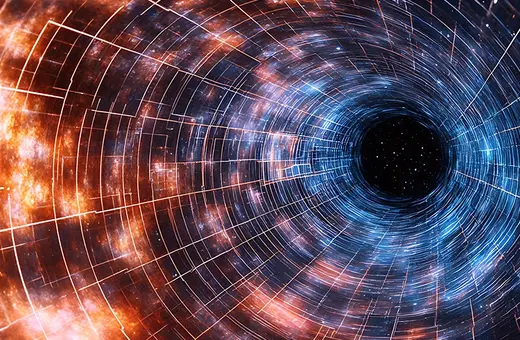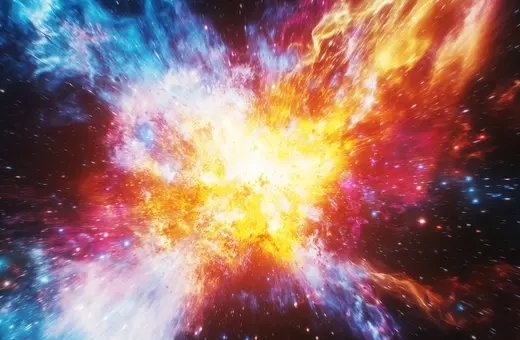The evidence is that Dark Energy is responsible for the rate of expansion of the universe. The name makes it sound like a spooky force, but, in fact, it’s the cosmological constant, Λ, that Einstein added to his theory of gravity back in 1917. Einstein regretted it, but we have been forced to put Λ back in the theory to fit the evidence. There is theoretical backing of a sort from quantum theory, which also predicts the presence of a cosmological constant, Λ, but with a value that is far off what we need. Finding a way to unify the predicted value of Λ by quantum theory, and the observed value of Λ from the expanding universe, would be a great discovery. But even the most sophisticated theory is constrained by observational evidence, which always will be imperfect and incomplete, and hence our theories always will be an approximation, never an account of ultimate reality, argues James Peebles.
The standard theory for explaining the expansion of the universe from a hot dense state requires the presence of Einstein's cosmological constant. The usual symbol for it is the Greek Λ, and today Λ is more commonly known as Dark Energy. Maybe the name is an improvement, but nothing else has changed. Our well-tested theory of the expanding universe needs something that acts like Λ, but we still do not know how this Λ fits in with our standard physics.
 SUGGESTED READING
Our model of the universe has been falsified
By Pavel Kroupa
SUGGESTED READING
Our model of the universe has been falsified
By Pavel Kroupa
It has been known since the 1930s that quantum physics naturally predicts the presence of a cosmological constant, Λ, but the predicted value is absurdly large. A quarter of a century ago, when we had much less evidence of how the universe is evolving, we tended to say that since the quantum estimate of Λ is clearly wrong, the only natural alternative is that Λ is zero. Einstein would have agreed with this hopeful argument; he regretted adding this term to his new theory of gravity, the general theory of relativity. But the accumulated evidence now makes a compelling case that we must learn to live with Λ, Dark Energy.
This is not the place to review the experimental case for the presence of Λ. My opinion of the evidence, and thoughts about how this evidence fits a physicist's philosophy of natural science, is in my book The Whole Truth [1]. You should bear in mind that the proper way to put the situation is that the experimental tests make a persuasive case that the standard theory of the expanding universe, including Λ, is a useful approximation to reality. The qualifier, approximation, is required because the final judgement of a theory lies with experimental tests. Most influential are tests of predictions that were not involved in the original formulation of the theory. We have abundant examples of this in natural science. And since all experiments have limited accuracy, all theories must be considered to be at best approximations to reality. Some are really successful, but they are approximations in my philosophy.





















Join the conversation